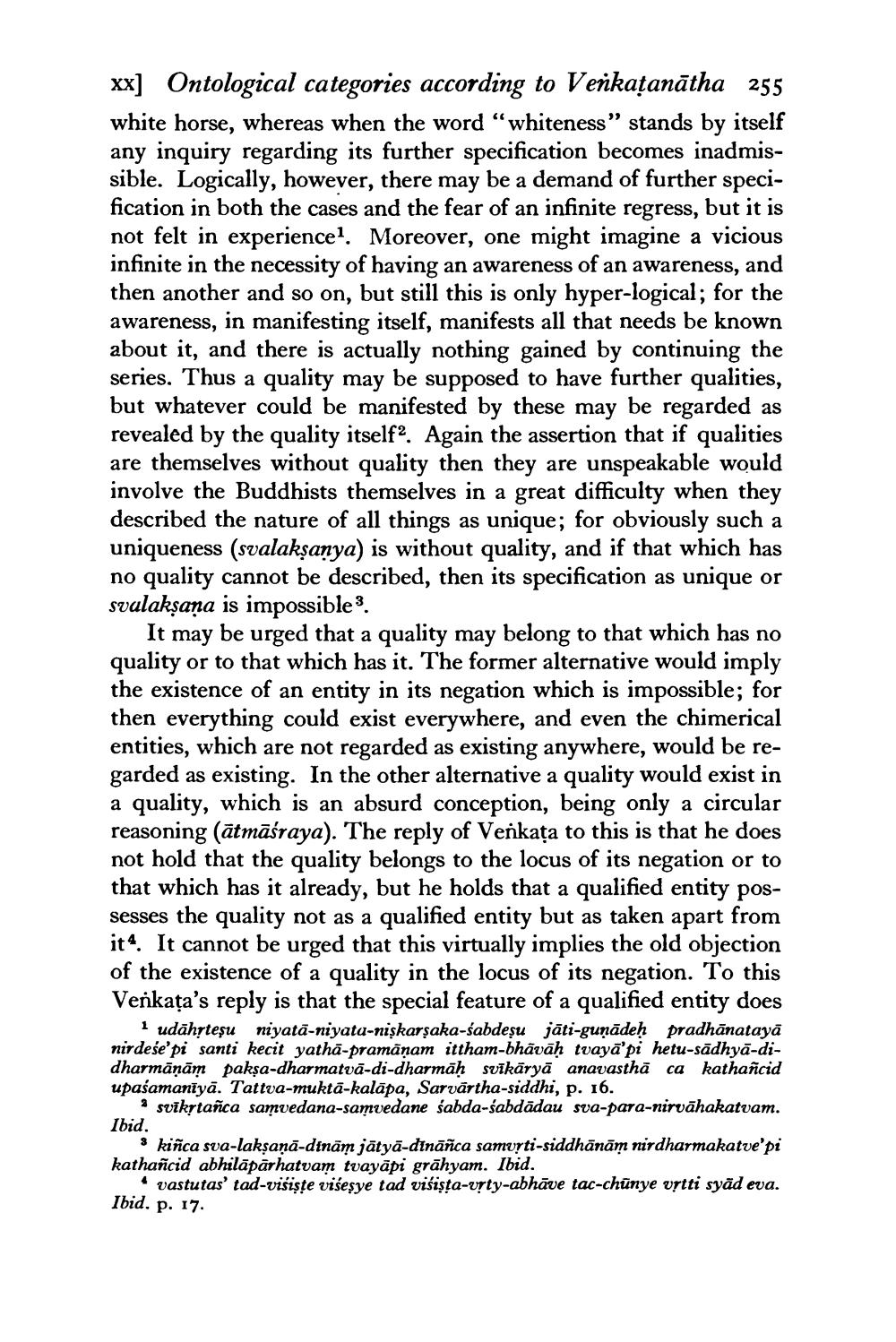________________
xx] Ontological categories according to Venkațanātha 255 white horse, whereas when the word “whiteness” stands by itself any inquiry regarding its further specification becomes inadmissible. Logically, however, there may be a demand of further specification in both the cases and the fear of an infinite regress, but it is not felt in experience1. Moreover, one might imagine a vicious infinite in the necessity of having an awareness of an awareness, and then another and so on, but still this is only hyper-logical; for the awareness, in manifesting itself, manifests all that needs be known about it, and there is actually nothing gained by continuing the series. Thus a quality may be supposed to have further qualities, but whatever could be manifested by these may be regarded as revealed by the quality itself?. Again the assertion that if qualities are themselves without quality then they are unspeakable would involve the Buddhists themselves in a great difficulty when they described the nature of all things as unique; for obviously such a uniqueness (svalakșanya) is without quality, and if that which has no quality cannot be described, then its specification as unique or svulakșana is impossible?
It may be urged that a quality may belong to that which has no quality or to that which has it. The former alternative would imply the existence of an entity in its negation which is impossible; for then everything could exist everywhere, and even the chimerical entities, which are not regarded as existing anywhere, would be regarded as existing. In the other alternative a quality would exist in a quality, which is an absurd conception, being only a circular reasoning (ātmāśraya). The reply of Venkata to this is that he does not hold that the quality belongs to the locus of its negation or to that which has it already, but he holds that a qualified entity possesses the quality not as a qualified entity but as taken apart from it4. It cannot be urged that this virtually implies the old objection of the existence of a quality in the locus of its negation. To this Verkața's reply is that the special feature of a qualified entity does
1 udāhrtesu niyată-niyata-nişkarşaka-sabdesu jāti-guņādeh pradhānatayā nirdese' pi santi kecit yathā-pramāņam ittham-bhāvāh tvayā'pi hetu-sādhyā-didharmāņām pakşa-dharmatvā-di-dharmaḥ svīkāryā anavasthāca kathañcid upasamanīyā. Tattva-muktā-kalapa, Sarvārtha-siddhi, p. 16.
svīkrtañca samvedana-samvedane sabda-sabdādau sva-para-nirvāhakatvam. Ibid.
8 kiñca sva-laksanā-dinām jātya-dināñca samurti-siddhānām nirdharmakatve'pi kathañcid abhilāpārhatvam tvayāpi grāhyam. Ibid.
• vastutas' tad-višişte višesye tad visista-vrty-abhāve tac-chūnye vytti syād eva. Ibid. p. 17.




